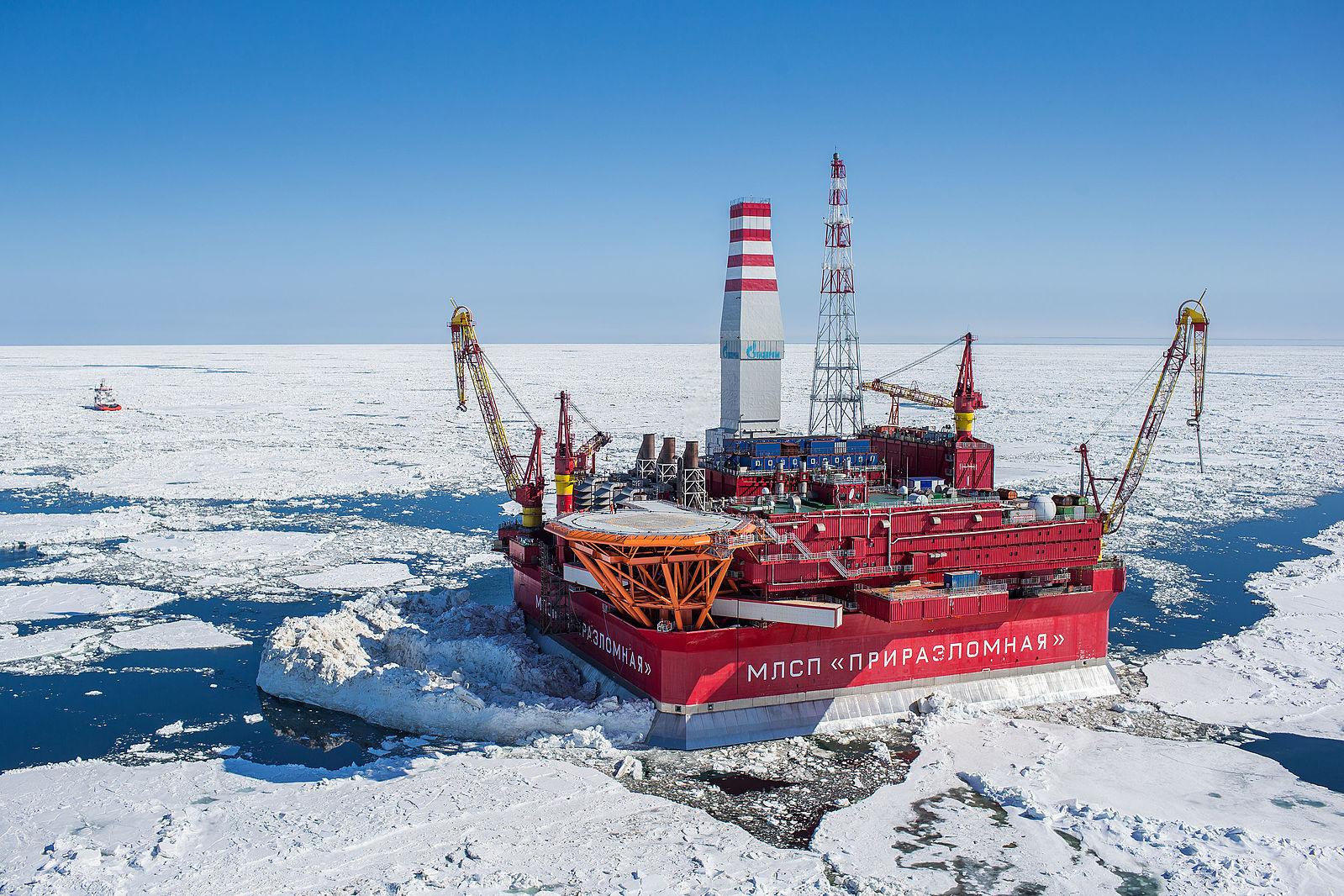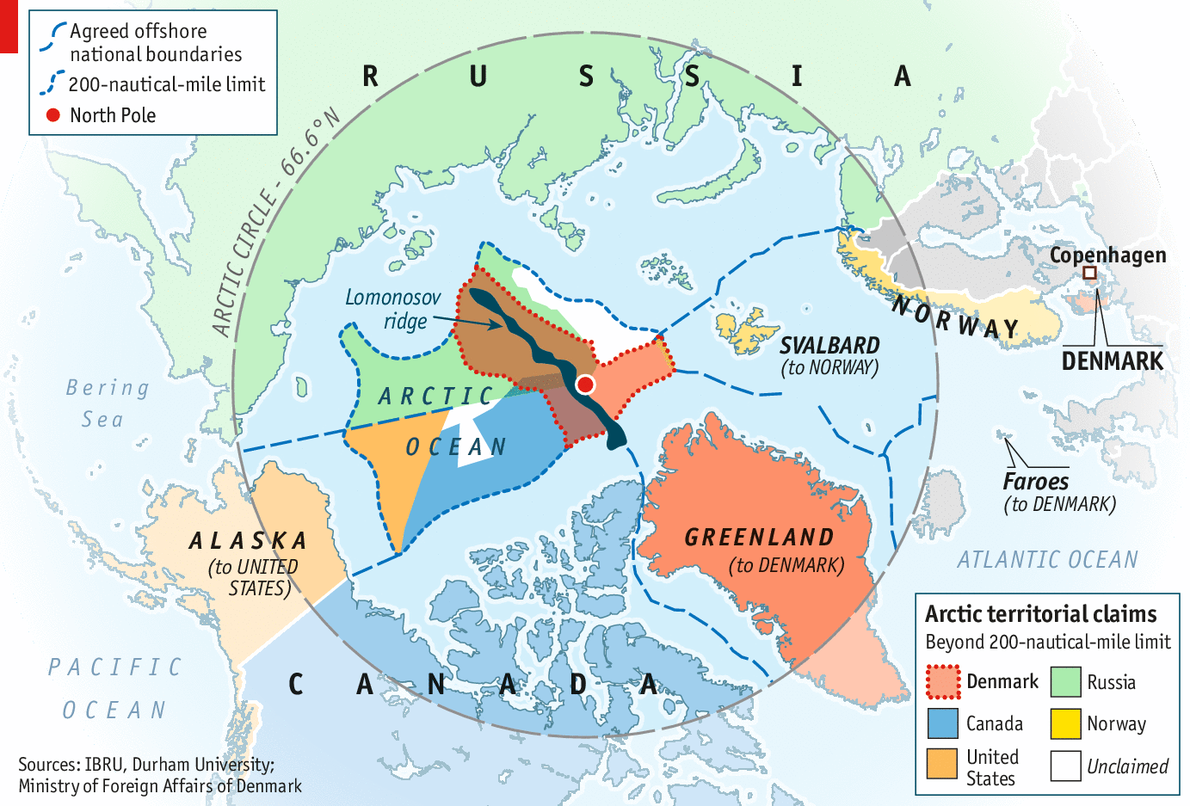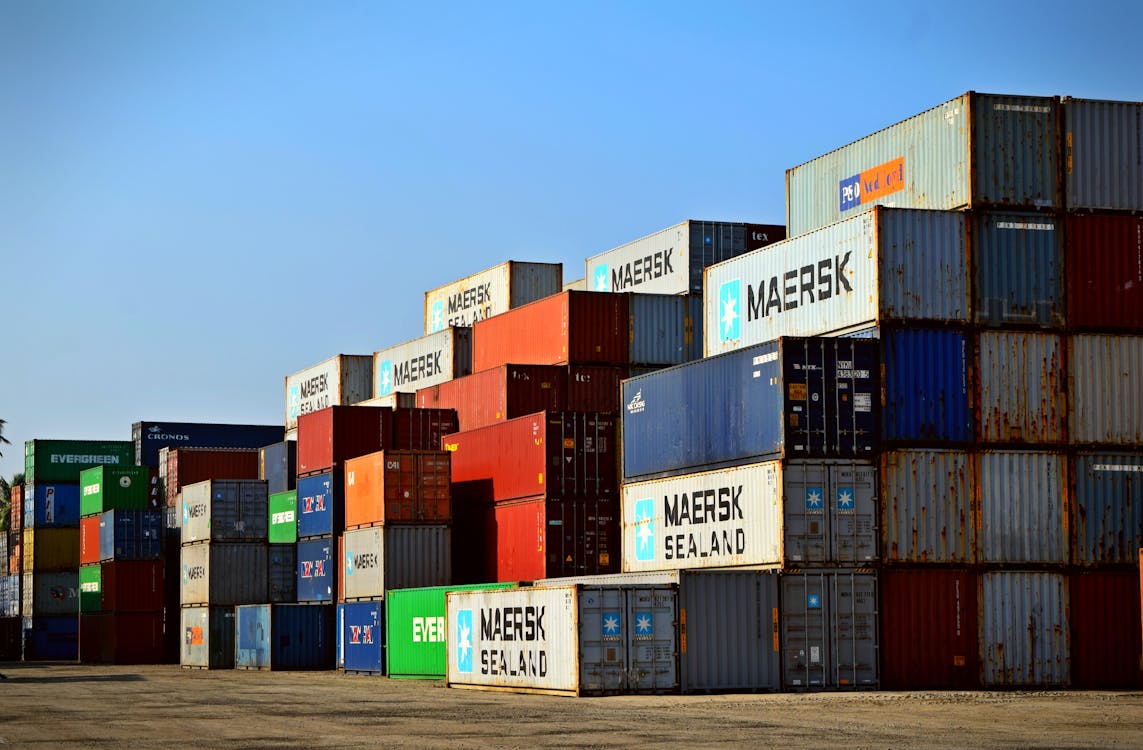Cooperation & Competition in the Arctic Circle

Climate change is more apparent in the Arctic Ocean than nearly anywhere else on the planet. In the coming decades, this area is likely to be of increasing interest to the international community, posing a myriad of security, commercial, and environmental concerns. As the polar ice caps melt, the area is becoming more accessible to both shipping and resource extraction, which is likely to lead to international confrontation among nations interested in the region.
The Arctic is warming faster than anywhere else on the planet, thus causing a significant decrease in the extent of the Arctic sea ice, which melts to its low each September. In addition to this, recent data from the National Oceanic and Atmospheric Administration has displayed that the ice is younger and thinner, therefore making it more susceptible to melting. According to a United Nations panel on climate change from 2013, “if global greenhouse gas emissions continue unabated, a nearly ice-free Arctic Ocean in September before mid-century is likely.”
In recent years, there has been jockeying among these nations for increased access to areas that experts believe have considerable potential for resource extraction. A 2013 report from the Council on Foreign Relations referenced an appraisal conducted by the United States Geological Survey that “estimated that nearly one-quarter of the earth’s undiscovered, recoverable petroleum resources lie in the region: 13 percent of the oil; 30 percent of the natural gas; and 20 percent of the liquefied natural gas. More than 80 percent of these are thought to be offshore.” Investment in the region is already occurring, dominated by Russian state-controlled firms, as well as Western petroleum companies such as Royal Dutch Shell and ExxonMobil, and this is only expected to increase.

The region holds major strategic significance for the nations that have territory within the Arctic Circle, namely the United States, Canada, Russia, Norway, Denmark, Iceland, Sweden and Finland. The area is governed by an intergovernmental organization known as the Arctic Council, comprised of these eight nations. As the Arctic has enormous potential economic promise, it has prompted these countries to update their security strategies for the region. Although most military analysts doubt the likelihood of armed conflict in the Arctic, the five littoral countries have nevertheless begun to prepare to protect their interests in the region. Russia in particular has made a military buildup in the Arctic a strategic priority. Similarly, the United States unveiled a National Strategy for the Arctic Region in May 2013, outlining a manner in which to protect a host of American interests in the region.
The Northwest Passage, once an explorer’s dream, is becoming a reality. Shorter trade routes through the Arctic Ocean could been extremely beneficial to export-driven nations such as China. The seasonal alternative trade routes through the planet’s northernmost ocean will cut travel time and costs significantly. However, Canada claims it has the sovereign right to regulate traffic through the Northwest Passage, while the United States claims that it is an international waterway, thus remaining consistent on similar policy fronts, namely concerning the Strait of Hormuz and the South China Sea. Decades ago, when the passage was unnavigable due to the ice, neither Ottawa or Washington pressed the issue, but in the future, this issue will become more contentious. Gary Li, a senior maritime analyst with IHS Maritime in Beijing told the Financial Times about the potential for alternative shipping routes in the Arctic, but qualified it saying that it “probably needs another twenty or thirty years of climate change to make it fully viable. And even then, it’s got so many constraints.”
The environmental impacts of global warming on the geopolitics of the Arctic are likely to be rather significant, but whether they are an opportunity for cooperation or competition in the region remain to be seen.




America should begin to use the Northwest Passage to turn the situation to its advantage. And while China and Canada unite their efforts in supporting Ottawa claim on sovereignty over the route, Washington should try to cooperate with Russians in considering the Northwest Passage as an international strait.
You see, if the Chinese really begin using the route within the framework set by Canadian law and regulation, it will present foreign acceptance of Canadian sovereignty there once and for all…
http://www.worldpolicy.org/blog/2016/09/14/chinese-prepare-use-northwest-passage